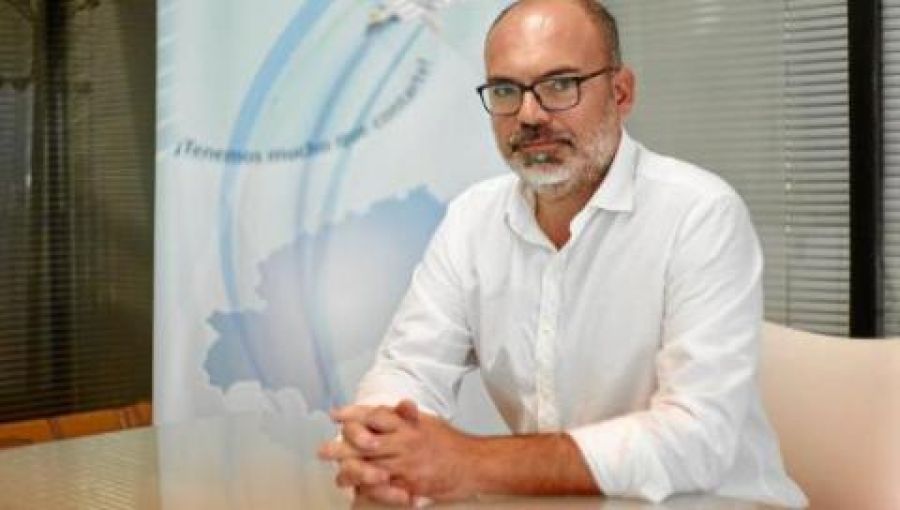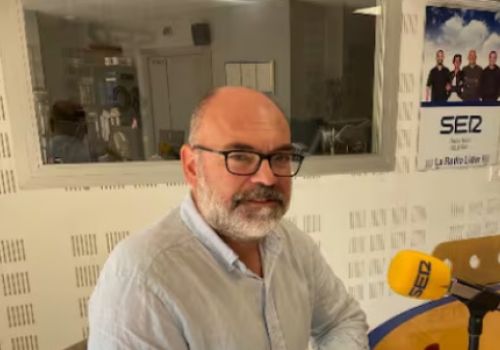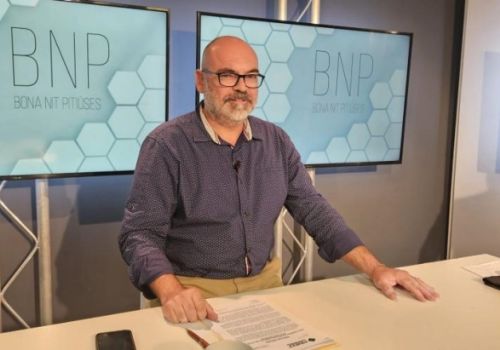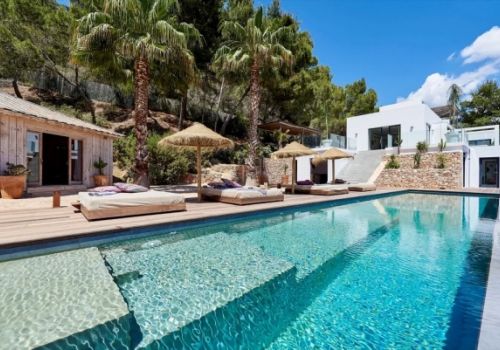José Antonio Llano: "Sometimes it is easier for legislators to prohibit than to regulate fairly".

He indicates that the association he presides was born with the aim of achieving a regulation of the tourist housing sector, however he is more in favour of regulation than prohibition, especially when he believes that the administration does not have the means to enforce the law.
With a rampant housing problem on the island, the president of the Ibiza Tourist Housing Association (Avat) believes that the sector he represents has gained an undeserved reputation as one of the factors causing it. He repeatedly stresses the fact that all members are renters of regulated holiday homes and says that his association is part of the solution. This past week they have organised, together with the Consell d'Eivissa and the Association of Small and Medium Enterprises, the IV Congress of Ibiza Holiday Dwellings.
In many big cities there is a restrictive regulation of holiday rentals, also in the Balearic Islands, do you feel stigmatised?
First of all, I would like to point out that we represent an association for the rental of single-family homes, not holiday homes, which is where the problem lies in these big cities. But in terms of housing, it is sometimes true that it seems that we are responsible for the lack of housing, for the prices, for all the problems that exist on the island. And we believe the opposite is true, that our sector helps a lot in the generation and distribution of wealth. It is not the same for this wealth to be concentrated in the hoteliers or the big chains as it is for the small owners. This results in a more equitable distribution.
Are the large number of unregulated tourist accommodations a disadvantage?
This intrusiveness in the sector is an important competition, and we would like the administration to fight against it with more strength and more resources. In line with this, we are against this exchange of vacancies that has been created with zero vacancies, because it does not give the possibility for these illegal dwellings to become legal. If they cannot be prosecuted because there are no means and they are not allowed to become legal, we will continue in the same way. We understand that there must be a ceiling on the number of places on the island, there cannot be unlimited growth. But not as it is being proposed now with zero places. Access to the legal market is very difficult because you have to buy them or wait for someone to leave to gain access.
What changes would you make, if you could, to the Tourism Law?
There has to be regulations, and this is what Avat was born for, so that there would be regulations to regulate it. But sometimes it is easier for legislators to prohibit than to look for a more real and fair solution, let's say. We don't like the zoning of the new regulation, at the level of Ibiza, because it is an island with its own characteristics. Fortunately or unfortunately, zoning was not approved in Ibiza because of the problems that the island government had. We are not convinced that new holiday rental properties are not allowed on rural land when they meet the requirements. We would like to see easier access to new properties that want to enter the sector because of the benefit it could bring to the island. Bear in mind that those illegal places that are there, they stay there. They can neither be prosecuted nor allowed to enter legally.
Are you seeing any progress in the prosecution of holiday rental properties that do not comply with the law?
Our impression is that there is still a lack of resources. Although it is true that with the new legal framework the big platforms are getting their act together, not only in the Balearic Islands. We are seeing that in other autonomous communities the rental platforms are demanding that owners legalise their properties, i.e. that they are registered. In this respect, we are seeing that the big platforms are starting to adapt. There must be an agreement between administrations and platforms to regulate and coordinate this activity. But there is still a lack of resources. The Consell does carry out inspections of tourist flats, but it is never going to reach the volume of houses outside the law. And I'm not only talking about flats, but also about single-family homes, illegal or unlawful, that are not registered, that do not pay taxes, that we don't know who is inside them. It's good to legislate, but if there are no means to control, it's difficult.
How is the sector in Ibiza?
Well, it is stagnating at the 20,500 places we had, fighting against the bad image that people want to give us because of the lack of housing. It is true, there is a pressing lack of housing in Ibiza, but we do not believe that we are ultimately responsible for this. Perhaps it is the tourist flats, the lack of housing policies that have been implemented by the current and previous governments or the way of legislating that exists. But we are excited, because we believe that we have a product that contributes to the wealth of the island and helps to distribute the benefits of tourism.
Are the owners of these properties more locals or foreigners?
There is a bit of everything. It is true that there was a time when a lot was bought and then rented out for tourism. That is true, there is no denying that. But there are also many small Ibizan owners who have renovated their houses, adapted their properties and are renting them out. I can't give you percentages, we know that there are many foreign owners who have bought and then rented, perhaps with the idea of speculating, but as long as it is legalised it is a rental like any other. But there are also Ibicencan owners with one or two houses. It is complicated to give percentages, just as the hoteliers do have a control, we are a newer sector with many small owners who are sometimes reluctant to give numbers.
How representative is Avat within the holiday rental sector in Ibiza?
We would like to have more. We are about 200 owner-partners and about 35 marketers. Compared to the volume of houses here, we are not very representative. One of our objectives is to attract and send a message to the owners of holiday homes so that they join us and together we can fight and look after our interests.
What are the most common scams you encounter and how do you deal with this problem?
The most common scam in Spain, and I think in the world, is identity theft. A person takes a photo of a house or steals that photo from a website, advertises it in another space and when the client arrives on the island they have paid money for a house that is there but they have not rented it to its owner. We are fighting in this aspect. At the beginning of the year we held a specific security conference in which the Guardia Civil took part and talked about this issue, but it is complicated.
It is a very easy scam to execute, how can it be avoided?
We have seen that certain platforms, such as Booking, are starting to make sure that the person advertising a property on their website is really the owner. Until now you could register on this or any other portal, upload your photos and start selling. Now some portals are starting to control this issue more.
Rental platforms, until now, have been a rather untamed space. Are these platforms being tamed, controlled?
I think so. They themselves realise that this is a major problem and that they cannot continue with the policy with which they began to operate. Although they then excuse themselves by saying that they are not responsible, but merely transmitters of information, we understand that they do have a responsibility to know who they are advertising on their portals. The damage they cause can be significant for the person being defrauded and for the image of the destination.
Are the prices of holiday homes in Ibiza stabilising?
We start from the fact that the rental price of properties in Ibiza varies greatly. It is true that we talk about the most expensive ones. Ibiza is an internationally renowned destination, it has a lot of demand, and we know that prices are regulated by supply and demand. We have been saying for some time now, and it is true that we have seen it more this year, that prices must be maintained. It is important to offer a price in line with the quality offered. This year it has been a little more difficult for us to sell. July and August have been a bit strange. Those properties with a higher price have been the ones that have had the most problems. The houses with good value for money have sold better.
Are Ibiza's high prices in relation to quality, and is there as much investment as in the hotel sector?
We are a newer sector than the hotel sector. The hotel industry in Ibiza was in some cases very old, and it is logical that it requires renovation and improvements, which also improve the destination. In the case of holiday rentals, a lot of investment has been made. We try to offer a quality product, the houses comply with a series of requirements established by the regulations. It is clear that there has been investment. There are houses of all prices, and in general the quality offered in Ibiza is very good.
SOURCE: IBIZA AND FORMENTERA NEWSPAPER, 21 OCTOBER 2018
Isaac Vaquer - Ibiza








